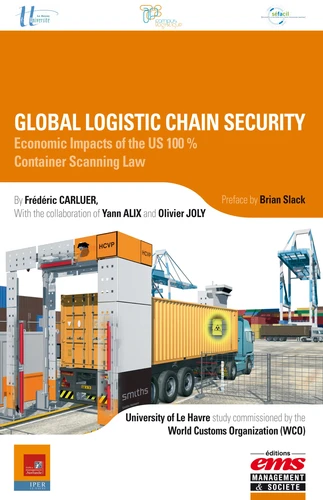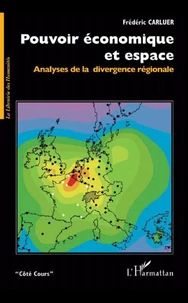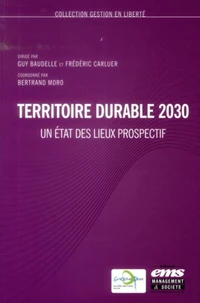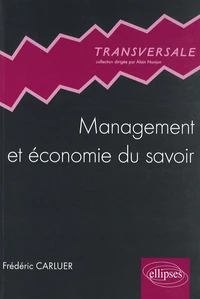Frédéric Carluer est Professeur des Universités à l'UFR Sciences Economiques de l'Université de Caen. Ses travaux portent sur l'économie géographique, l'analyse stratégique de la décision et la dynamique comparée des systèmes éducatifs.
Global Logistic Chain Security : Economics Impacts of the US 100% Container Scanning Law
Par :Formats :
Disponible dans votre compte client Decitre ou Furet du Nord dès validation de votre commande. Le format Multi-format est :
- Pour les liseuses autres que Vivlio, vous devez utiliser le logiciel Adobe Digital Edition. Non compatible avec la lecture sur les liseuses Kindle, Remarkable et Sony
 , qui est-ce ?
, qui est-ce ?Notre partenaire de plateforme de lecture numérique où vous retrouverez l'ensemble de vos ebooks gratuitement
Pour en savoir plus sur nos ebooks, consultez notre aide en ligne ici
- Nombre de pages218
- FormatMulti-format
- ISBN978-2-84769-343-0
- EAN9782847693430
- Date de parution28/05/2008
- Protection num.NC
- Infos supplémentairesMulti-format incluant ePub avec ...
- ÉditeurÉditions EMS
- PréfacierBrian Slack
Résumé
The '100% scanning' law, or House Resolution 1 (H. R. 1), aims to protect US territory against terrorist risks likely to affect the globallogistic chain. A unilateral step, it may be perceived as a disguised protectionist measure which would transfer the risk of 'seacurity' to itspartners, particularly if the principle of reciprocity does not apply. In this changing economic (over 325 million containers handled, under 0.5% of which are currently scanned) and regulatory context (following the SAFE framework of standards developed by the World Customs Organization), this forward-looking work parts from a single hypothesis: what will happen if the US 100 % scanning law adopted by Congress in July 2007 actually enters into application on 1 July 2012, or even sooner should there be an attack in the United States, and what are the alternatives ?
The '100% scanning' law, or House Resolution 1 (H. R. 1), aims to protect US territory against terrorist risks likely to affect the globallogistic chain. A unilateral step, it may be perceived as a disguised protectionist measure which would transfer the risk of 'seacurity' to itspartners, particularly if the principle of reciprocity does not apply. In this changing economic (over 325 million containers handled, under 0.5% of which are currently scanned) and regulatory context (following the SAFE framework of standards developed by the World Customs Organization), this forward-looking work parts from a single hypothesis: what will happen if the US 100 % scanning law adopted by Congress in July 2007 actually enters into application on 1 July 2012, or even sooner should there be an attack in the United States, and what are the alternatives ?













